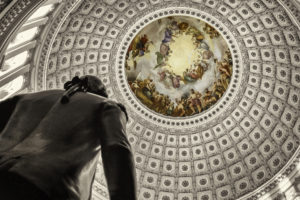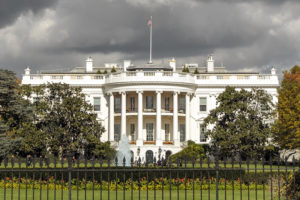
The Senate uses the Congressional Review Act to strike CFPB lending guidance, Facebook releases new privacy settings for users in certain countries, and more…
IN THE NEWS
- Using the Congressional Review Act (CRA), the U.S. Senate voted 51-47, along party lines, to roll back 2013 guidance published by the Consumer Financial Protection Bureau (CFPB) intended to prevent discriminatory lending. Amit Narang of Public Citizen criticized the maneuver as “a dangerous deregulatory precedent that stretches the CRA far beyond its original intent.”
- Facebook announced the addition of new user privacy settings to comply with the European Union’s (EU) upcoming General Data Protection Regulation, which goes into effect on May 25. With this update, Facebook will ask users whether they want to continue sharing certain information on their profile and offer face recognition for users in the EU and Canada. Facebook will also debut user tools for accessing, deleting, and downloading information and special features protecting teens in some EU countries.
- The U.S. Supreme Court voted 5-4 to affirm a U.S. Court of Appeals for the Ninth Circuit ruling that a deportation provision in the Immigration and Nationality Act was too vague to be enforced. Justice Neil Gorsuch was the deciding vote and wrote in his concurring opinion that “any law so vague that reasonable people cannot understand its terms” violates the Due Process Clause of the U.S. Constitution.
- New York Attorney General Eric Schneiderman launched an initiative seeking to improve transparency and accountability for platforms used to trade cryptocurrencies such as Bitcoin. The Virtual Markets Integrity Initiative sent letters to 13 currency trading platforms, also known as exchanges, seeking information on their policies and practices. “With cryptocurrency on the rise, consumers in New York and across the country have a right to transparency and accountability when they invest their money,” Schneiderman said.
- The U.S. Fish and Wildlife Service issued a memo clarifying that the Migratory Birds Treaty Act of 1918 would no longer hold people or corporations liable for incidental killings of birds. The Audubon Society noted that this new interpretation benefits oil and electric companies. Seventeen former U.S. Department of the Interior employees, including political appointees and career civil servants, wrote a letter to Secretary of the Interior Ryan Zinke expressing grave concerns with this new stance.
- The U.S. Securities and Exchange Commission (SEC) voted 4-1 to seek public comment on proposed rules protecting personal investors. The SEC’s proposed rule requires brokers and dealers to disclose key facts about its relationship with the customer, including “material conflicts of interests,” meet the professional standard of care, and have procedures in place to eliminate, mitigate, or disclose its material conflict of interests. Voting in opposition, Commissioner Kara Stein said the proposed rule “protects the broker-dealer, not the customer.”
- New York Attorney General Schneiderman wrote a letter to New York Governor Andrew Cuomo urging legislative action to close a statutory “loophole” in the state’s criminal procedure law. New York’s current law protects some presidential pardon recipients from prosecution for state crimes, even though U.S. Department of Justice rules governing presidential pardons only apply to federal offenses. If the state legislature adopts Schneiderman’s proposal, New York will join more than 20 other states that allow pardoned federal offenders to be prosecuted for violations of state law.
- President Donald Trump announced two nominees for positions at the Board of Governors of the Federal Reserve System. He nominated Richard Clarida, an economics professor at Columbia University and global strategic advisor at Pacific Investment Management Co., for the position of vice chairman of the Board of Governors. He also nominated Michelle Bowman, Commissioner of the State Bank of Kansas, for a seat on the board reserved for someone with community banking experience.
- The American Hotel and Lodging Administration (AHLA) called for stricter regulations on Airbnb and other short-term rental websites due to their lack of transparency and oversight. The AHLA has worked since 2016 to rein in these websites and claimed numerous regulatory victories across the country. Nick Papas, press secretary for Airbnb, reportedly criticized the AHLA’s work as “short-sheeting the middle class so they can keep price-gouging consumers.”
WHAT WE’RE READING THIS WEEK
- To “many regulatory professionals in and out of government,” the Trump Administration’s war on regulations “raises questions of process,” Charles S. Clark wrote in an article in Government Executive. Following the case of a proposed U.S. Department of Labor rule on restaurant tips, Clark compiled comments from experts including former Labor Chief Economist Heidi Shierholz, who argued that the Labor Department violated the Administrative Procedure Act, and Peter Wallison of the American Enterprise Institute, who suggested that Trump Administration appointees are sending a deregulatory signal to the business community.
- In an op-ed for The Guardian, Deborah Berkowitz of the National Employment Law Project and Suzanne McMillan of the American Society for the Prevention of Cruelty to Animals wrote about potential risks of a new regulation meant to streamline the meatpacking industry. The Modernization of Swine Slaughter Inspection rule would allow slaughterhouses to develop inspection plans tailored to their own needs. Berkowitz and McMillan worried that giving slaughterhouses more control over inspections would lead to corner-cutting, which would put public health, animal welfare, and work safety at risk.
- Adam Liptak wrote in an op-ed for The New York Times that President Trump’s travel ban, scheduled for oral argument at the U.S. Supreme Court next week, can be compared to President Roosevelt’s 1942 executive order to detain Japanese-Americans in internment camps. The supporting briefs for both sides in Trump v. Hawaii address the similarities and distinguishing facts between the two executive orders. In light of the historical context, the Supreme Court announced that it would expedite the release of the transcript and audio recording of the hearing, which Liptak explained was “a rare step” that the Court “reserves for cases likely to face historical scrutiny.”



